 PICTURE IS OF FALLUJAH SITES NEAR HOSPITAL
PICTURE IS OF FALLUJAH SITES NEAR HOSPITALCurfew-Bound Fallujah On The Boil Again
Inter Press Service By Ali al-Fadhily*
FALLUJAH, Jun 27 (IPS) - Strict curfew and tight security measures have brought difficult living conditions and heightened tempers to residents of this besieged city. The siege in this city located 60km west of Baghdad has entered its second month. There is little sign of any international attention to the plight of the city. Fallujah, which is largely sympathetic to the Iraqi resistance, was assaulted twice by the U.S. military in 2004.
The second attack in November destroyed roughly three-quarters of the city of 350,000 residents. Now, Fallujah faces assault of another kind by way of a strict curfew where people are closed in from all sides. Many people who had earlier supported the Iraqi police that works with the U.S. military, now oppose it. "We gave full support to the police force despite opposition from others to forming this force," a community leader in the city who asked to be referred to as Ahmed told IPS. "Others told us this force would only serve the occupation forces, but we accused them of being against stability and order. Unfortunately, they appeared to be absolutely right."
Cars have not been permitted to move on the streets of Fallujah for nearly a month now. A ban was also enforced on bicycles, but residents were later granted permission to use them. "Thank God and President Bush for this great favour," said Ala'a, a 34-year-old schoolteacher. "We are the only city in the liberated world with the blessing now of having bicycles moving freely in the streets." On May 21 U.S. and Iraqi forces imposed a security crackdown on the city following continuing attacks.
Local non-governmental organisations such as the Iraqi Aid Association (IAA) have told reporters that the U.S. military is not allowing them access to the city. "We have supplies but it is impossible to reach the families. They are afraid to leave their homes to look for food, and children are getting sick with diarrhoea caused by the dirty water they are drinking," IAA spokesman Fatah Ahmed told reporters. "We have information that pregnant women are delivering their babies at home as the curfew is preventing them from reaching hospital."
Medical services are inaccessible to most because the hospital is located on the other side of the Euphrates River from the rest of the city. Extra security checkpoints have severely hampered movement within the city, and most businesses have closed. A year ago the local police cut mobile phone services.
The curfew is also restricting residents' ability to go out and find much needed supplies in the markets. Residents told IPS that there is on average only two hours electricity in 24 hours. Residents say they are up against killing prices. "Now they are killing us with a new weapon," a young man with a mask covering his face told IPS. "A jar of gas costs 20 dollars and a kilo of tomatoes costs 1.50 dollar, and people cannot go to work."
"U.S. snipers on rooftops are enjoying themselves watching us walk around to find a bite of food for our families," 55-year-old Hajji Mahmood told IPS. "They laugh at us and call us names. They should know Fallujah is still the same city that kicked them away three years ago." Life seems completely paralysed with little sign of movement under a blazing sun, with temperatures up to 45 degrees (centigrade). "We are sweating to death because some of us went to those damned elections," said a 40-year-old lawyer, speaking with IPS on condition of anonymity, referring to the Jan. 30, 2005 elections.
"The wise men told us not to, but we believed those crooks of the Islamic Party who promised to make things better," he said. Many people in the city accuse the Islamic Party supportive of the U.S. of leading the 'security plan' in al-Anbar province where Fallujah is located. A local political analyst offered his views to IPS via the Internet, on condition of anonymity. "I find it rather strange that to control a city under the flag of providing citizens with peace and prosperity, you deprive them of all signs of life," he said. "Arab, Muslim and all international community leaders should be ashamed of themselves for not even talking about this crime.
"Nonetheless, U.S. leaders are just buying more time towards more failure that they hope will magically turn into success. I am hopeless of any peace in Iraq as long as the democrats sold their fight cheap to the Bush administration." Lt-Col Azize Abdel-Kader, a Defence Ministry official who coordinates security operations in al-Anbar said the curfew -- which runs from 6 pm until 8 am -- was necessary to maintain security. "It is a temporary curfew and we hope it can soon end," he told reporters in Baghdad last week. "We are looking into ways to let aid agencies enter Fallujah but it is too dangerous for the time being."
(*Ali, our correspondent in Baghdad, works in close collaboration with Dahr Jamail, our U.S.-based specialist writer on Iraq who travels extensively in the region)
Inter Press Service By Ali al-Fadhily*
FALLUJAH, Jun 27 (IPS) - Strict curfew and tight security measures have brought difficult living conditions and heightened tempers to residents of this besieged city. The siege in this city located 60km west of Baghdad has entered its second month. There is little sign of any international attention to the plight of the city. Fallujah, which is largely sympathetic to the Iraqi resistance, was assaulted twice by the U.S. military in 2004.
The second attack in November destroyed roughly three-quarters of the city of 350,000 residents. Now, Fallujah faces assault of another kind by way of a strict curfew where people are closed in from all sides. Many people who had earlier supported the Iraqi police that works with the U.S. military, now oppose it. "We gave full support to the police force despite opposition from others to forming this force," a community leader in the city who asked to be referred to as Ahmed told IPS. "Others told us this force would only serve the occupation forces, but we accused them of being against stability and order. Unfortunately, they appeared to be absolutely right."
Cars have not been permitted to move on the streets of Fallujah for nearly a month now. A ban was also enforced on bicycles, but residents were later granted permission to use them. "Thank God and President Bush for this great favour," said Ala'a, a 34-year-old schoolteacher. "We are the only city in the liberated world with the blessing now of having bicycles moving freely in the streets." On May 21 U.S. and Iraqi forces imposed a security crackdown on the city following continuing attacks.
Local non-governmental organisations such as the Iraqi Aid Association (IAA) have told reporters that the U.S. military is not allowing them access to the city. "We have supplies but it is impossible to reach the families. They are afraid to leave their homes to look for food, and children are getting sick with diarrhoea caused by the dirty water they are drinking," IAA spokesman Fatah Ahmed told reporters. "We have information that pregnant women are delivering their babies at home as the curfew is preventing them from reaching hospital."
Medical services are inaccessible to most because the hospital is located on the other side of the Euphrates River from the rest of the city. Extra security checkpoints have severely hampered movement within the city, and most businesses have closed. A year ago the local police cut mobile phone services.
The curfew is also restricting residents' ability to go out and find much needed supplies in the markets. Residents told IPS that there is on average only two hours electricity in 24 hours. Residents say they are up against killing prices. "Now they are killing us with a new weapon," a young man with a mask covering his face told IPS. "A jar of gas costs 20 dollars and a kilo of tomatoes costs 1.50 dollar, and people cannot go to work."
"U.S. snipers on rooftops are enjoying themselves watching us walk around to find a bite of food for our families," 55-year-old Hajji Mahmood told IPS. "They laugh at us and call us names. They should know Fallujah is still the same city that kicked them away three years ago." Life seems completely paralysed with little sign of movement under a blazing sun, with temperatures up to 45 degrees (centigrade). "We are sweating to death because some of us went to those damned elections," said a 40-year-old lawyer, speaking with IPS on condition of anonymity, referring to the Jan. 30, 2005 elections.
"The wise men told us not to, but we believed those crooks of the Islamic Party who promised to make things better," he said. Many people in the city accuse the Islamic Party supportive of the U.S. of leading the 'security plan' in al-Anbar province where Fallujah is located. A local political analyst offered his views to IPS via the Internet, on condition of anonymity. "I find it rather strange that to control a city under the flag of providing citizens with peace and prosperity, you deprive them of all signs of life," he said. "Arab, Muslim and all international community leaders should be ashamed of themselves for not even talking about this crime.
"Nonetheless, U.S. leaders are just buying more time towards more failure that they hope will magically turn into success. I am hopeless of any peace in Iraq as long as the democrats sold their fight cheap to the Bush administration." Lt-Col Azize Abdel-Kader, a Defence Ministry official who coordinates security operations in al-Anbar said the curfew -- which runs from 6 pm until 8 am -- was necessary to maintain security. "It is a temporary curfew and we hope it can soon end," he told reporters in Baghdad last week. "We are looking into ways to let aid agencies enter Fallujah but it is too dangerous for the time being."
(*Ali, our correspondent in Baghdad, works in close collaboration with Dahr Jamail, our U.S.-based specialist writer on Iraq who travels extensively in the region)
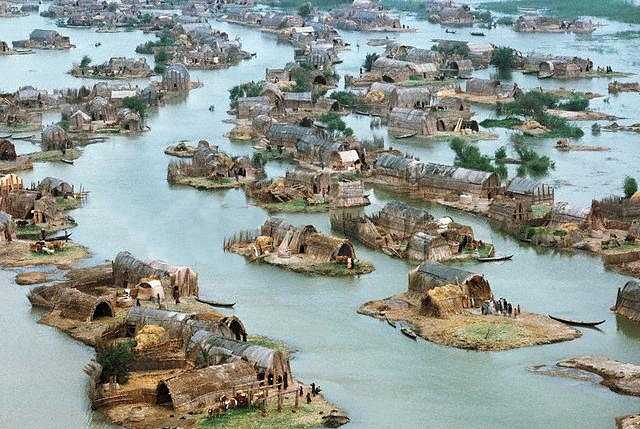
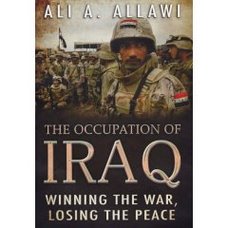
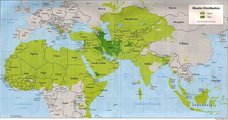
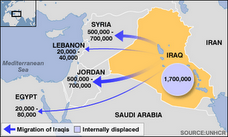
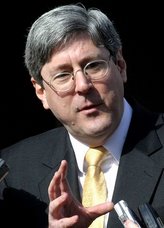
No comments:
Post a Comment